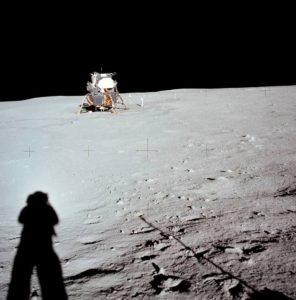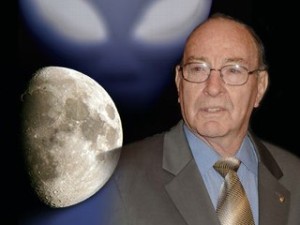President Kennedy already had initiated the race to the moon. The United States was a distant second to the Soviet Union when he declared his intention to ensure that we “send a man to the moon and return him safely to the Earth” by the end of the 1960s.
Then the president implored us on. “We don’t do these things because they are easy,” he said. “We do them because they are hard.”
Well, Americans got to the moon first. It was 49 years ago today that the late Neil Armstrong stepped off the ladder onto the moon’s dusty surface and pronounced, “That’s one small step for (a) man, one giant leap for mankind.”
He thrilled the folks back home. Not just in our country, but everywhere. Perhaps even in the Soviet Union.
Mission accomplished.
We sent several more missions to the moon. Astronauts planted flags, dug up lunar dirt and brought it back, they drove around on “lunar dune buggies,” and one of them — the first American in space, the late Alan Shepard — even hit a chip shot that went for “miles and miles.”
Then we stopped going to the moon. It became too expensive. The public lost interest. We won the race. The act of launching three people into space aboard a flaming rocket carrying many thousands of pounds of flammable fuel no longer fascinated the American public.
I am one American who lived through that exciting time. I want them to return.
Subsequent presidents have given somewhat tepid support for the initiative of returning to deep space. The end of the Cold War in 1991 removed the Soviet Union from the world landscape. The Soviet descendants, though, have continued to send explorers into space. They now carry passengers with them. Some of them are Americans.
I am acutely aware of the expense of such exploration. However, it was what we were put on this Earth to do, to reach beyond our planetary comfort and to learn more about the world beyond.
Donald J. Trump has continued the presidential push — such as it’s been — to return one day to space. I want NASA to redevelop its own manned program. It’s what we do — and we do it well.
My sense is that enough time has passed since the last moon mission that we’ll get quite excited when the next rocket blasts off into the heavens with crews that will take the next “giant leap for mankind.”


